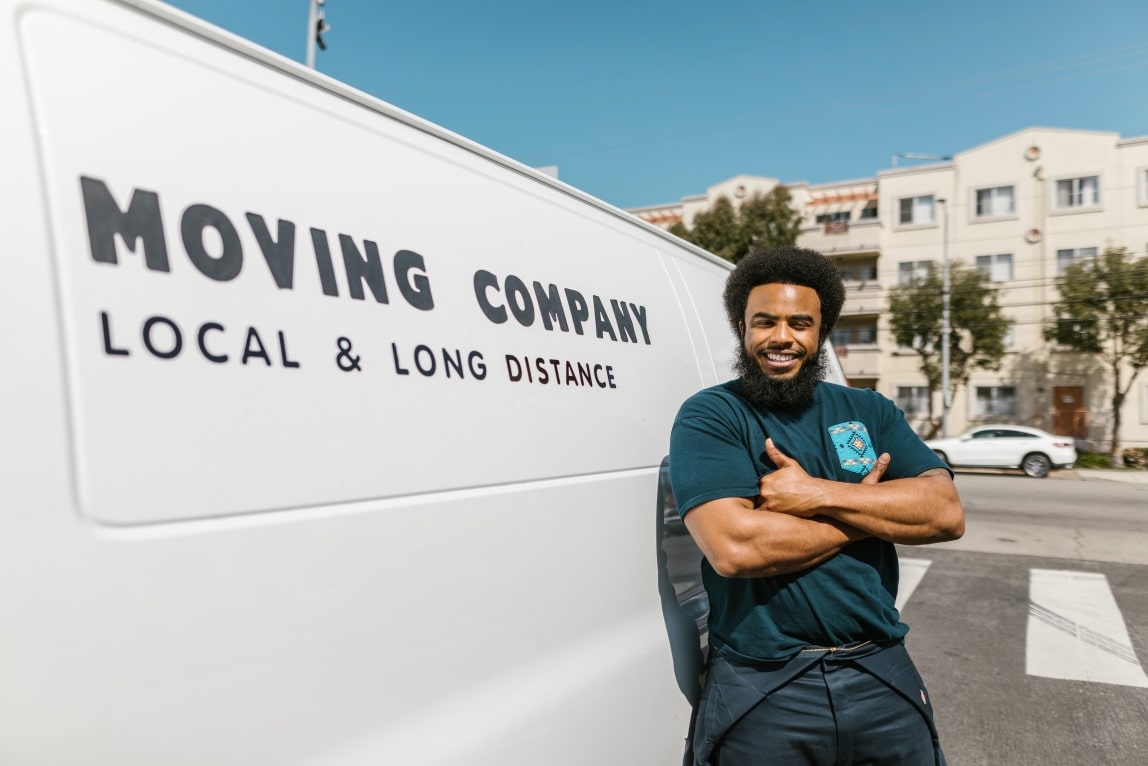Thanks to the internet, you can find dozens of movers in Connecticut in a couple of seconds. However, there are almost too many companies to choose from and, more importantly, there are more scammers out there than ever before. In some ways, finding a trustworthy CT moving company is harder than ever as you will have to spend time researching each potential company. Still, you’ll be happy that you performed your due diligence once all of your belongings are safely in your new home.
If you don’t know where to start when looking for CT movers, the steps below should help you weed out any potential low-quality movers and scammers.
Ask Friends and Family
Sure, the internet is great, but there’s nothing better than having your friends and/or family members provide you with recommendations. Nowadays, even online reviews aren’t necessarily trustworthy as companies can easily pay people to write good reviews. What they can’t do is pay off people you already know. If you know someone who used a professional CT movers, ask them about their experience. Some good questions to ask include:
- Were the movers on-time?
- Was the moving crew professional?
- Did anything get damaged during the move and how did the company respond?
- Did the final moving cost match the initial quote? If not, was it because you forgot to include something or did they try to up charge you?
- What additional services, if any, from the movers did you use? How do you rate that service?
Ask as many questions as you can think of! Your friends and family should be more than happy to answer them and give insight into the good and bad of the company they used. If their report sounds good to you, then make sure to add that moving company to the list.
You might not know anyone who has moved recently, so your next best bet is to read online reviews. No company has 100% customer satisfaction. If you notice thousands of reviews but zero complaints, the company might have deleted some of the more critical ones. You should also filter by lower ratings and see what the issues were. It’s up to you to decide if these negative reviews are warranted or not.
Shop Around
Yes, even if your friends or family members gave glowing reviews for the same moving company, it’s in your best interest to find at least two other options. There are a few reasons for this:
Choosing a moving day that works around your schedule
While most movers should have availability during the time frame that might not always be the case if you’re moving during peak season (May-September) or making a last-minute move. If your move falls into either category you definitely want to have some backup options in case the one you really want falls through.
Ensuring a company offers all of the services you need
All moving companies offer basic loading and unloading, but not all offer the same extra services. Many don’t even offer the same quality of service for their basic moves! Highly-rated movers in CT will include free services with the basic move such as disassembling and reassembling basic furniture, wardrobe boxes, dismounting TVs, etc.
If you require something besides basic moving, such as packing/unpacking, storage, etc., mention that in your initial call. You don’t want any surprises on the day of the move!
Negotiating a better rate
You likely won’t see huge fluctuations in the estimate for your move so long as you are in contact with professional moving companies. If one estimate seems significantly cheaper than the others, don’t book them. Chances are the company is trying to scam you!
With that said, you can see if the company has any active deals going on especially if you’re moving during off-peak season. You can often leverage the quote from another company to negotiate a better rate with the movers you prefer.
Verify Their Legitimacy
All reputable moving companies have a unique number that is provided by the US Department of Transportation (USDOT) when they register as a moving company. All movers must provide this number on their website and in their advertising. In addition, they must also have a carrier number from the Federal Motor Carrier Safety Administration (FMCSA). If you don’t see the number anywhere on their site, consider that a red flag. You can always call and ask for it, but the information is supposed to be readily available so you can do your research before calling. If they cannot provide a number, do not book them!
To check a USDOT number go to the FMCSA site and search for the moving company you are using. You can check if there are any complaints, crashes, safety issues, etc. While you’re on the search result, you should check the following:
- Basic information – make sure the company name, address, and phone number on the site matches what you see on the website
- State carrier ID – not all states require a USDOT. If that’s the case, you can look up their state carrier ID that verifies they can make local moves
- Operating status – make sure it says active! Avoid any companies that are inactive, out-of-service, or not authorized.
In order for moving companies to get their DOT number, they have to prove they have the appropriate insurance. In general, professional movers should have general and automobile liability insurance as well as workers’ compensation and property insurance. That way, should anything happen during the move, nothing comes out of your pocket. That means, if the movers damage your old or new home, their insurance will handle the cost of repair. It also means that if one of the moving crews gets injured on the job, the moving company will handle it.
Look Out for Other Red Flags
It’s not always easy to spot a scammer and with a high stress event like moving, it can be easy to get pressured into signing a contract, especially if you’re short on time. If you have a bad feeling about the company, trust your gut. With that said, here are some common red flags:
- Asking for a large deposit up front- Most moving companies might ask for a small deposit to reserve your date, but if they are asking for a large cash deposit, it likely means they are scammers.
- Avoiding your questions – reputable moving companies will always be happy to answer any questions you have as they want to provide you with the best experience possible. If the person on the phone dodges your questions or simply can’t answer them, it’s not a good sign.
- Using high pressure tactics – most scammers want to put you into a situation where you feel like you don’t have any choices but to work with them whether that’s because a ‘deal’ is running out or that their slots are booking quickly. If you feel like the person on the phone is really trying to get you to sign paperwork on the initial call, find another company.
- Significantly cheaper than the competition – everyone wants to save money, but most professional moving companies have relatively similar pricing. If you find a deal that’s too good to be true, it probably is. Many scam companies will provide only the fixed rate in their initial quote. It isn’t until moving day that they will add on all the extra fees they didn’t mention.
If you do end up being a victim of a moving scam, report it as soon as possible to the Better Business Bureau and FMCSA. You might not be able to get your money back (unless you want to go to small claims court, which can take even more money), but you can at least warn others and inform the proper authorities.
Find the Right Movers for You
Hiring movers might make moving day a breeze, but it comes with its own set of challenges. In order to find the best movers, you should start planning your move at least a month in advance. That way, you will have plenty of time to do your research and find the perfect CT movers.
FAQ
Some of my items were damaged during the move. What should I do?
You have 90 days to file your claim and the movers have 120 days to either accept or reject your claim so make sure to file as soon as possible! If you have third-party moving insurance, reach out to them to see what you need to provide.
What should I do if the movers stop responding to my calls and emails
If you haven’t been able to reach the moving company for a few days, move on to your second or third choice. Chances are the first company was a scam and was discovered so they are laying low.
How much should a local move cost?
It depends on how much you’re moving and how far you’re moving. All of these affect the cost. However, moving a small 3-bedroom house locally can cost anywhere between $1,500-$3,000.


